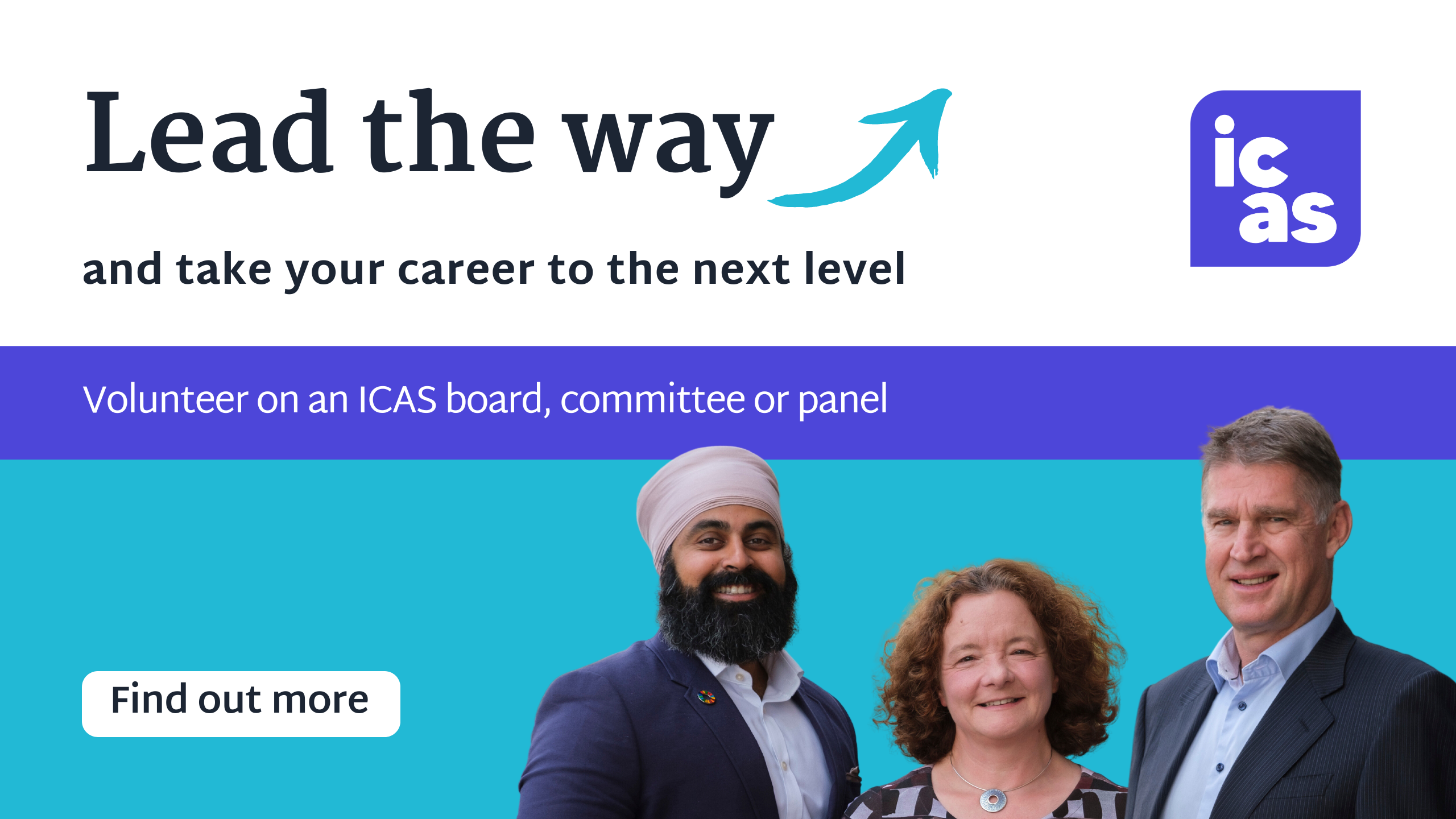How to be confident,
assertive and influential

How to be confident,
assertive and influential

Coach and author Simon Horton takes Fiona Nicolson through the benefits, both professional and personal, of the soft skills that bolster your self-belief
ACA’s working life may focus primarily on numbers, but soft skills are just as important for getting the job done. ICAS, in partnership with BPP, is running three courses to help CAs and other professionals improve their personal touch. They are How to Be More Confident (13 September), Assertiveness (16 September) and Influencing Skills (17 September). Each course is all day and online.
These skills, which are inextricably linked, are vital for ambitious CAs, says trainer Simon Horton. Horton has worked with blue-chip clients such as Lloyd’s of London, law firm Slaughter and May, banks Dresdner Kleinwort and Credit Agricole, consultancy CapGemini and IT giant Accenture. He is also the author of several books, including The Leader’s Guide to Negotiation, which was published by the Financial Times.
“The person who is confident and assertive is more likely to put themselves forward for promotion,” says Horton. “And they are more likely to get it because the decision makers are more likely to be aware of them and their successes. In comparison, the unassertive person, even if they are good at their job, won’t be as visible and may not be thought of for the role.
“Someone who doesn’t resolve their lack of confidence will always be that person who never gets the good roles, is overlooked for promotion and doesn’t make partner.”
There is another, more fundamental, reason why these skills are a must for CAs, adds Horton: “In professional services, you need to be able to represent clients assertively and confidently. It’s your professional duty.”
Horton’s knowledge of these topics is backed up by his own experience. “When I left university and first started work, I was exceedingly unconfident and unassertive, so I went on an assertiveness course. It has positively impacted my career – and my life,” he says.
While taking on the challenge of improving interpersonal skills may feel daunting, it is definitely doable, says Horton: “The good news is that confidence and assertiveness are ‘learnable’ skills.”
A virtuous circle
Horton suggests thinking of soft skills as a virtuous circle: “When we are confident, our level of confidence drives our performance. We typically perform better, and the quality of our performance will drive the results we achieve. The results then drive our beliefs about ourselves and our capabilities. We build the belief that we are good at what we do. Those beliefs in turn drive our confidence.”
The ICAS courses identify and address the obstacles to overcome. “On the confidence course, we discuss unhelpful beliefs and how to deal with them,” he says. “We also look at how to turn your internal negative voice into a positive version.”
“In professional services, you need to be able to represent clients assertively and confidently. It’s your professional duty”
Delegates are taught practical exercises that they can apply both at work and in their personal life. “We look at assertiveness as being in the middle of a spectrum where passive behaviour is at one end and aggressiveness at the other – and how this helps position our behaviour,” says Horton.
“A good rule of thumb for any particular situation is to consider what a passive person would do, and what an aggressive person would do, and to identify what assertive behaviour might therefore look like. A lot of it is about respect – both self-respect and respecting the other person.”
Managing emotion is a key factor in developing confidence and assertiveness, he confirms: “Another thing that can hold us back in our careers is emotional ‘overwhelm’, where we keep quiet about something that’s bothering us, the emotion builds up and then one day we explode. Or we burst into tears because of the overwhelm − the amygdala hijacking the brain means that we can’t think clearly. Even though we know what to do, we still can’t do it. Fear of this is what makes us keep quiet in the first place.
“So we take a look at how to manage emotional overwhelm, which enables us to stay calm and collected and take a considered approach even in a highly charged situation. We also cover the subject of difficult people, by reviewing examples of behaviours and identifying strategies for how to deal with them. Another common issue we explore is the inability of unassertive people to say no. We discuss diplomatic but robust ways of doing so.”
Attending the course is just the first step on the journey. It takes concentration and engagement during the sessions, then working hard on your skills afterwards to maximise the benefits, says Horton: “I encourage attendees to put aside distractions, contribute to discussions and ask questions to get the most out of the day.
“We focus on plans, techniques and new habits, but it’s also important that delegates ensure they implement what they have learned when they go back to the office.
In conclusion, Horton says: “I believe that learning these skills can transform every aspect of your life. People who come to the course are different people by the end of the day – the change is visible.”
View our full list of available courses





